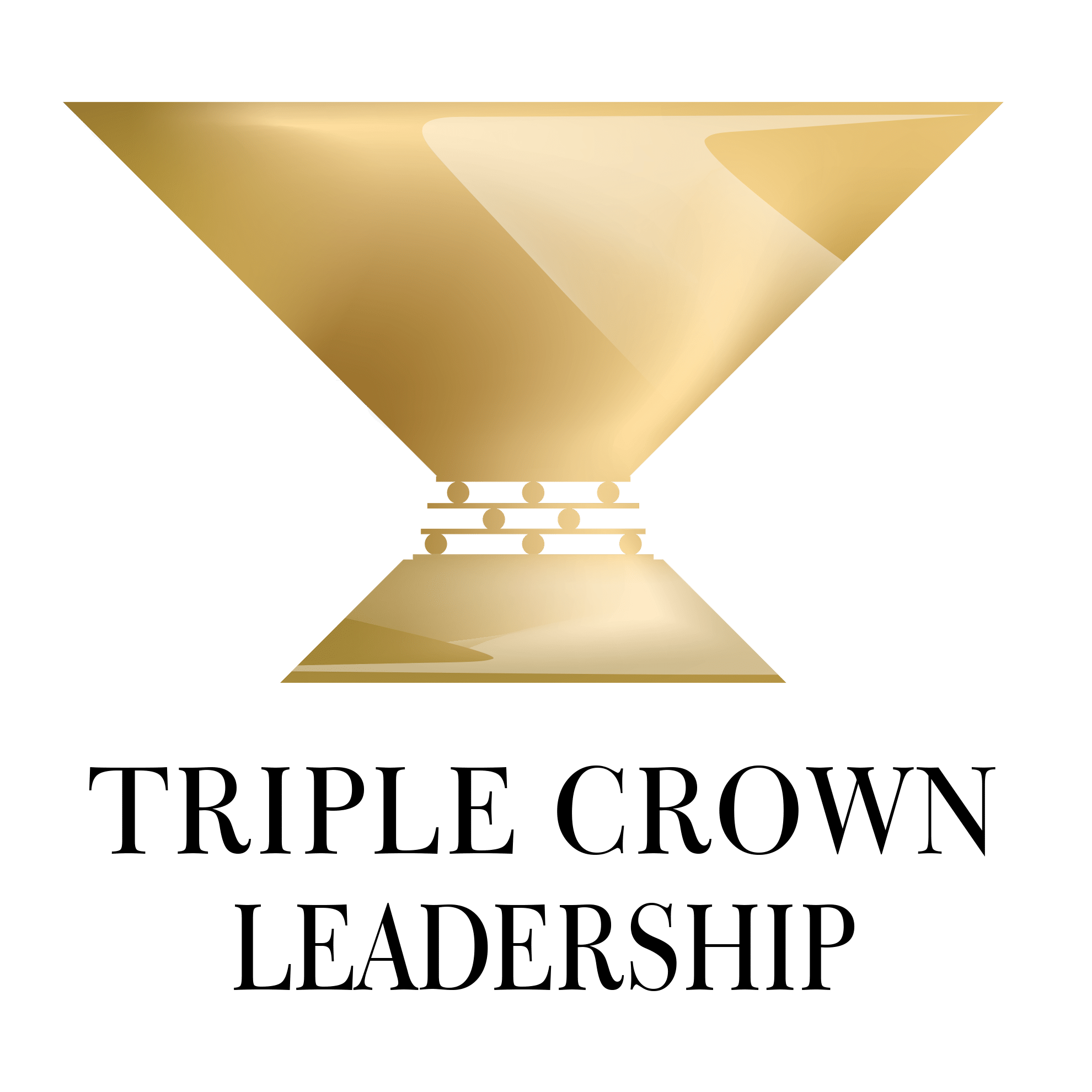(This presentation was given on April 27, 2022, by Bob Vanourek at the University of Denver’s Elevate Ethics 2022 Event, hosted by the Daniels College of Business and the Institute for Enterprise Ethics.)
“Elevate Ethics.” What a wonderful title. I want to speak tonight about ethical leadership, my passion.
How can we be more ethical in today’s world? Why are ethics important? Whose ethics? And just what are ethics anyway? I hope to encourage all of us to strengthen our ethical foundations.
My interest in ethical leadership started in my first job. As young MBAs, we were doing things I felt were wrong. We were firing the owners of the companies we had bought. Also, we were closing factories and doing anything we could to make our quarterly numbers.
It didn’t feel right to me. So I quit.
I had been fascinated by leadership ever since high school, but my concept of leadership was being in control and telling others what to do. Over the years I learned a better way to lead. I learned there were ethical organizations that outperformed their peers. None were perfect, but if they stumbled, they quickly returned to their core principles.
Leading Ethically Is a Far Superior Way To Lead
I learned that ethical leadership was a far superior way to lead. So I began to lead ethically. I made mistakes. Ethical leadership not only worked. It was remarkable. Our organizations began to soar.
When I retired, I began teaching what I had learned about ethical leadership. Then, son, Gregg, invited me to co-author a book with him. The result was Triple Crown Leadership: Building Excellent, Ethical, and Enduring Organizations. We interviewed leaders from 61 organizations in 11 countries. Organizations like Mayo Clinic and Medtronic.

I’ve spent the last 20 years teaching, writing, and speaking about ethical leadership. I’ve been involved with the Daniels College of Business and the Institute for Enterprise Ethics for over 20 years. Daniels and the Institute have done laudable work. Given our world today, I also feel it’s time to strengthen our efforts on ethical leadership even more.
What is Ethics?
In Triple Crown Leadership, we defined ethics simply as “doing the right thing—even when it’s costly or hard.” Ethics involves what we do and how we do it. Ethical leadership is not just for people with titles. It‘s for all of us as we lead in our homes, workplaces, and schools.
As a turnaround CEO, I heard many excuses for unethical behavior: “Bob, business is business.” “Everybody’s doing it.” “We have to do it in this industry.” “If we don’t make our quarterly numbers, we’ll be taken over.”
All were rationalizations for taking the easy way out. Ethical malfeasance is taking the easy way out.
Ethical leadership requires courage. There’s huge pressure to bend and break the rules. The pressure comes from Wall Street, institutional shareholders, hedge funds, and short sellers. It comes from boards, CEOs, and bosses right down the line.
I saw salespeople under pressure lie to customers to get orders. Also, I saw workers ship products that had questionable quality to make the numbers the bosses demanded.
I was guilty too until I learned better. Alas, I bled reserves down. I borrowed sales from future quarters to make this quarter’s numbers. Then I had to borrow again just to keep even. Insane. Driven by short-term pressures. It was “business.” But it turned my stomach.
Why Should We Be Ethical?
The choices we make have ethical consequences. We do good for others, or we harm others. Think about the ethical issues our country faces overseas with autocratic dictatorships. Our federal government’s spending levels are unsustainable. Our infrastructure is crumbling. Congress hasn’t passed an annual budget in years.
Some people say, “We have the best government money can buy.” In Michael Porter’s latest book, The Politics Industry, he says we have “a self-serving, self-perpetuating duopoly that is unhealthy and unaccountable to unhappy voters.” That duopoly is the right and the left at war with each other with progress gridlocked. Our governing system needs an ethical cleansing.
Two things corrupt people more than anything else: power and money. Many of our entrenched political and business leaders have both. Crony capitalism is rampant. Companies pay in campaign contributions to get what they want in pork-laden bills, unwarranted subsidies, and special-interest tariffs. Extreme partisanship has kept us from civil dialogue to solve our critical issues.
Why ethics?
Think about the ethical issues we face in business. What’s the purpose of a business? Is it maximizing shareholder value by sub-optimizing other stakeholders with layoffs, pollution, misleading customers, and cooking the books to make the quarterly numbers? Or is it creating value for all stakeholders, including a reasonable return for shareholders and owners?
Should we do business in autocratic countries that violate human rights to make money? Are we not then complicit in those human rights violations? These are ethical issues. Have the big tech and media companies lost their moral compass by feeding our outrage to click on another post to sell their advertising? Corporate greed and deception seem rampant. Should the federal government aggressively regulate markets? Or should we reform capitalism from the inside out? These are ethical issues.
Why ethics? Think about sports teams and athletes that cheat. How many pro athletes have felony records and are idolized for their athletic prowess? Many of our celebrity stars are terrible role models. Violence in the streets and crime are rising. Fraud, scandals, and coverups abound.
Yet many rigorous studies show how certain companies outperform others financially. Which companies? The most ethical, the most trustworthy, the best places to work, the places with the greatest worker engagement, the companies running their businesses for the long-term. These businesses financially outperform their competitors. Why?
- because trust is built with customers, employees, and vendors
- because employee engagement and commitment rise
- because creativity and innovation surge
- because people stop carping and hiding and start collaborating, solving difficult challenges
I know, because I’ve been there. My colleagues and I created ethical cultures in formerly toxic companies. It was transformative. It was a gamechanger. We never wanted to go back to how we did business before.
Together we cleaned up a billion-dollar public company that had paid hundreds of millions of dollars in fines and legal settlements for corruption under the previous management team. We got rid of the toxic managers. And we rebuilt the leadership team around ethical, values-based leadership. It was the best team I ever led. The results were amazing.
Dirty industries
Some whole industries often resort to unethical behavior. Think of the financial industry on Wall Street, or the tobacco industry. Or think of some big tech firms and the ethical issues they confront about free speech, data privacy, and algorithms that promote outrage to get more clicks. Think of big pharma misconduct and the security industry, where I witnessed corruption personally. Some industries are just outright dirty.
Think of Wells Fargo, which virtue-signaled itself as a values-based company, but whose reward systems led to the creation of 3.4 million fake accounts to meet company quotas. Or think of the ongoing malfeasance at Goldman Sachs, which used to be an admirable and ethical partnership. Money and power. Money and power.
Ethical challenges abound:
- Short-term greed
- Income inequality
- Racial discrimination
- Environmental damage
- Trust is down everywhere
- Employee engagement is down
- Separation into warring classes is up
- Partisanship is up
- Anger is up
Why strengthen our ethics?
Because our world is hurting. Is this the world we want to pass on?
Ethical leadership itself won’t solve these macro-challenges. But ethical leadership will give us the moral foundation upon which people with diverse views and experiences, working together, will begin solving our problems. Not the warring classes we’re divided into today.
Ethical behavior will also give us a better life personally. We’ll sleep better. And we’ll be healthier, with less stress and worry. We’ll unleash the talents of others through higher trust, engagement, and commitment. Our organizations will outperform competitors financially.
Ethical leadership is our gamechanger.
But whose ethics should we strengthen? Our ethics. We must start inside first.
We’re all flawed. I certainly am. We must live by our own moral compasses, informed by the great minds from all cultures throughout history.
That’s why we need a sterling ethical education. And that’s why Daniels and the Institute for Enterprise Ethics have been so essential. That’s what attracted me here 20 years ago through my friend, Dan Sweeney (former Executive Director of the Institute).
How Can We Strengthen Our Ethics? 10 Suggestions
How can we strengthen our ethics? Here are ten thoughts:
- Commit to be ethical. It’s an act of will. We must make ethical leadership a personal priority.
- We must be prepared for the ethical challenges we’ll face. Expect them and be ready.
- Define our personal values. I suggest people use our free Personal Values Exercise on our website.
- Enlist a small circle of trusted advisors for counsel. We can’t fight this battle alone. We’re all prone to self-deception.
- Have a place of sanctuary for deep reflection. Perhaps a remote cabin in nature, or mindfulness, yoga, long walks or runs, or even sabbaticals?
- Be brave. Ethical behavior requires courage. Read Gus Lee’s great book, Courage: The Backbone of Leadership.

Personal Values Exercise
Complete this exercise to identify your personal values. It will help you develop self-awareness, including clarity about what’s most important to you in life and work, and serve as a safe harbor for you to return to when things are tough.
Answer these four questions about an ethical choice you’re wrestling with:
7. What would mom say about this choice?
8. What if everyone made this choice?
9. How would you feel if this choice was done to you?
10. How would you feel if this choice was published as front-page news?
What else?
Now, what more might Daniels and the Institute do to strengthen ethics?
- Strengthen the Business Ethics and Legal Studies (BELS) department. After observing BELS for 20+ years, I sense BELS is currently under-resourced.
- Staff the Institute with a full-time executive director and more funding to inculcate ethical leadership in every organization and person it touches.
- Celebrate ethical behavior. In Rochester, New York, Elevate Rochester makes annual ethics awards to a variety of organizations. The community loves it. Organizations compete and enhance their ethical behavior. Rochester set the goal to be “the gold standard” of ethical behavior. Why not make Denver “the platinum standard” of ethical behavior? We had such a program back in the 1990s, as Dr. John Holcomb said. It drew an audience of a thousand. Why not restart it now?
- Embed more dialogue on current ethical issues in Daniels’ courses and the Institute’s events. Ethical debates are frothing around us. They need respectful dialogue. Issues like:
• Stakeholder or shareholder primacy.
• Reforming capitalism from the inside.
• Important current topics such as: ESG, DEI, free speech, critical race theory, cancel culture, corporate activism, wokeness, greenwashing, purpose-washing, virtue signaling, and more. All these topics have ethical issues we should discuss civilly.
Summary
In summary:
- Ethics is “doing the right thing—even when it’s costly or hard.”
- Ethical challenges are widespread.
- Ethical leadership is needed by all of us.
- A sound ethics education is essential.
- There are many ways each of us can strengthen our ethical compass.
I hope I’ve encouraged you to strengthen your ethical foundation. I constantly work to strengthen mine. It’s hard. It takes courage, but it’s so incredibly satisfying.
If you wish to contact me, send me a note via our web site.
Daniels and the Institute can build on their past successes and become the preeminent standard of ethical behavior. What a wonderful gift that would be to our world.
Good luck and God bless.
-Bob Vanourek

Leadership Derailers Assessment
Take this assessment to identify what’s inhibiting your leadership effectiveness. It will help you develop self-awareness and identify ways to improve your leadership.
Tools for You
- Leadership Derailers Assessment to help you identify what’s inhibiting your leadership effectiveness
- Personal Values Exercise to help you determine and clarify what’s most important to you
- Alignment Scorecard to help you assess your organization’s level of alignment
++++++++++++
Bob Vanourek and Gregg Vanourek are leadership practitioners, teachers, trainers, and award-winning authors. They are co-authors of Triple Crown Leadership: Building Excellent, Ethical, and Enduring Organizations, a winner of the International Book Awards. Check out their Leadership Derailers Assessment or join their community and sign up for their monthly newsletter. If you found value in this, please forward it to a friend. Every little bit helps!



4 thoughts on “Ethical Leadership: Our Gamechanger”
Great article Bob. You deserve an ETHIE!
Thanks, Bob. That means a lot coming from you and thanks for all you do to build trust in the world.
Great thought leadership Bob. Thanks ,
Terry
Thanks, Terry!
Comments are closed.